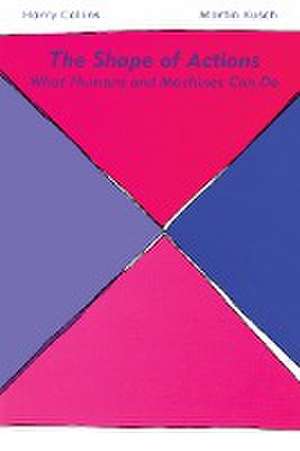The Shape of Actions – What Humans and Machines Can Do
Autor Harry Collins, Martin Kuschen Limba Engleză Paperback – 20 feb 2017
Following a presentation of their detailed categorization of actions, the authors apply their approach to a broad range of human-machine interactions and to learning. Key examples include bicycle riding and the many varieties of writing machines. They also show how their theory can be used to explain the operation of organizations such as restaurants and armies. Finally, they look at a historical case—the technological development of the air pump—applying their categorization of actions to the processes of mechanization and automation. Automation, they argue, can occur only where what we want to bring about can be brought about through mimeomorphic action.
Preț: 234.43 lei
Nou
Puncte Express: 352
Preț estimativ în valută:
44.86€ • 46.83$ • 37.13£
44.86€ • 46.83$ • 37.13£
Carte tipărită la comandă
Livrare economică 05-19 aprilie
Preluare comenzi: 021 569.72.76
Specificații
ISBN-13: 9780262526524
ISBN-10: 0262526522
Pagini: 224
Dimensiuni: 165 x 228 x 12 mm
Greutate: 0.31 kg
ISBN-10: 0262526522
Pagini: 224
Dimensiuni: 165 x 228 x 12 mm
Greutate: 0.31 kg
Notă biografică
Harry Collins is Distinguished Research Professor and Fellow of the British Academy. Widely acknowledged as a founder of the sociology of scientific knowledge, his most recent work is concerned with the norms and values that make science distinctive and the contribution this enables scientific institutions to make in democratic societies. ORCiD: https://orcid.org/0000-0003-2909-9035
